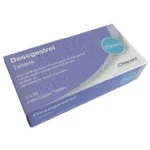Sewer lines typically run from the kitchen, toilets, and bathrooms, and drain into a nearby septic tank or the municipal sewerage system. It’s critical to keep the lines clean, as failure to do so results in unpleasant odors in your home, irritating gurgling sounds, or gray and black water backing up into the house. As a homeowner, it pays to know how to avoid such issues. Here are five pro tips to keep your sewer line safe: (1)
Delegate maintenance to professional plumbers
A busy schedule may deny you the required time for ensuring your sewer lines are clean and properly maintained. Instead of taking the chances and assuming all is well, you’d want to contract the services of reliable plumbers, such as wootenknockoutplumbing.com, to assist you with the maintenance.
Before settling on any plumbing company, consider the following factors:
- Quality of services: Reliable plumbers should have excellent work ethics, enabling them to do any task you assign them to perfection. You wouldn’t want to pay someone for a job, only to be forced to hire another one because of the shoddy work done.
- Affordability: Plumber fees vary considerably, so you’d want to go with a budget-friendly one. Make sure to strike a healthy balance between costs and quality of services instead of simply choosing the cheapest company.
- Availability: Plumbing emergencies are all too common. Thus, whenever you get into unexpected scenarios, you’d want a plumber that can show up at your home immediately despite the short notice. Ideally, work with a company that operates round the clock. (2)
Know what should or shouldn’t go down the drain
The kitchen is a common culprit for clogs. As you do the dishes, you must restrain yourself from forcing all kinds of trash down the drain. Here are some food items you should never flush down the kitchen drainage:
- Flour, as it’ll mix with water and turn into dough
- Potato, tomato, onion, and fruit peels
- Oily foods since they may stick within the drainage sewer lines
- Grease, which is notorious for gluing together other food particles into a solid mass.
- Kale and spinach stems
- Eggshells (3)
In essence, sewer lines are delicate and can’t handle heavier foods. So, only allow tiny food cramps with relatively smaller particles.
The same applies to the toilet drainage system. Avoid flushing the following items, as they can cause blockages:
- Baby diapers
- Sanitary towels
- Medicine
- Chemicals
- Paper towels
- Chewing gum
- Hair
- Tampons
- Condoms
- Plastic items
- Dental floss (4)
All these items belong in the trash can. Taking such caution keeps your sewer lines clean and clog-free.

Properly maintain tree roots
Having trees within your compound is commendable due to their aesthetic appeal and ability to create a cool microenvironment. However, having them planted too near the sewer line isn’t good practice. Their roots can penetrate plastic pipes and cause numerous leakages along the sewer line. So, if you’re looking to plant trees, locate them a few meters away from the sewer line.
But if you already have trees near the sewer line, you’d want to call in sewer experts from Simply Sewers to help you control the tree roots. Experienced plumbers can successfully tame the roots without damaging sewage pipes.
Use high volume flush
Low volume flushes are usually slow, meaning the waste materials may remain within the pipes for long, which may cause clogging. Even though it may be a measure to save water, prolonged use of this flushing method may cause frequent clogs.
A better approach would be to use powerful high-volume flushes or convert your toilet to an energy-efficient one. This ensures all the waste goes down the drain as fast as possible, reducing the possibility of blockages. Also, you’ll have fewer worries regarding the maintenance of sewer lines because they become self-cleaning. (5)
Use one-ply toilet paper
Sewer lines work well with materials that can break down easily to avoid clogs in the pipe system. For this reason, consider using one-ply toilet paper. They’re created from a single layer of paper which makes them light and thin. Thus, they move through the drains quickly, reducing the likelihood of clogs.
Moreover, they’re relatively cheaper, meaning you save money in the long run while ensuring your sewer lines are clean. On the contrary, the two-ply and three-ply varieties may be a bit heavy to break down.
Conclusion
Evidently, keeping your sewer lines clean shouldn’t be nerve-racking. It’s primarily about knowing what should or shouldn’t go down the drain. But even so, they can get blocked for reasons beyond your control, for which you can enlist professional help from plumbing companies. Ultimately, with clean sewer lines, your home will remain devoid of foul odor and plumbing problems.
References
- “Symptoms of a Sewer Drain Clog”, Source: https://www.thespruce.com/signs-of-a-sewer-drain-clog-2718943
- “How to find a good plumber”, Source: https://www.goodhousekeeping.com/uk/consumer-advice/a532100/how-to-find-a-good-plumber/
- “11 things you should never put down the drain”, Source: https://www.insider.com/things-not-to-put-down-my-drain-2019-4#:~:text=There%20are%20certain%20foods%20and%20other%20substances%20that,unused%20medication%20by%20putting%20it%20down%20the%20drain.
- “13 Things You Should Never Flush Down Your Toilet”, Source: https://www.rd.com/list/things-never-flush-down-toilet/
- “TOILETS”, Source: https://psci.princeton.edu/tips/2020/1/20/toilets-101






